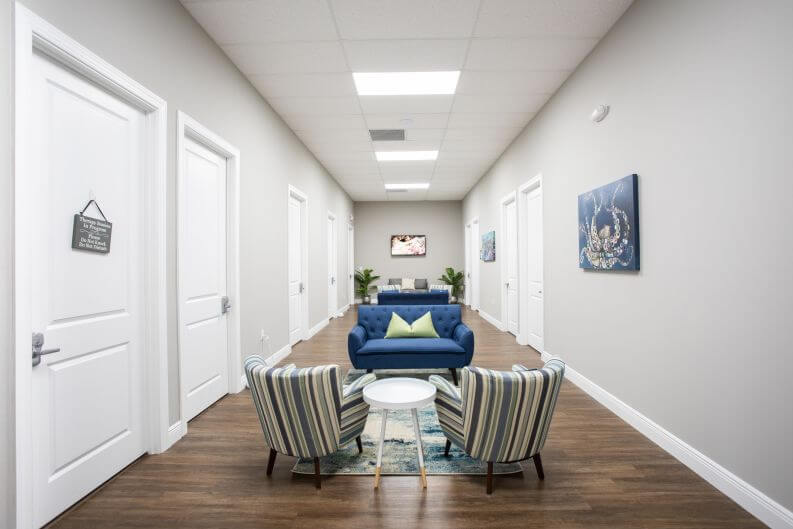
The decision to go to rehab is not always easy but recovery is its own reward. If you find yourself reading these words, chances are you are at least considering treatment for yourself or someone you care about. That is great news, as willingness is the key to beginning the recovery process. Here are some essentials regarding the length of drug rehab and what to expect.
Most drug rehab stays begin with medical detox. The detox phase is designed to mitigate withdrawal symptoms and ease the transition to sobriety safely. It typically takes between 5 to 14 days, depending on the substances involved, quantity, length of use, and the patient’s overall health. A safe medical detox is the best way to begin recovery. Withdrawal without it can be incredibly uncomfortable and often results in immediate relapse. In the case of alcohol, benzodiazepine, or barbiturate withdrawal, the symptoms can be fatal, so this must be taken seriously.
Following detox, the usual course is to move into some form of residential treatment that can last anywhere from three weeks to three months or more. (1)
What will happen during inpatient treatment?
Inpatient treatments are structured and organized. The primary goal is to create new and healthy habits to prepare to return to recovery outside the controlled environment. (2)
Some of these may include:
- Group and individual therapy
- Exercise and nutrition
- Medication management
- Healthy sleep and personal hygiene routines
- Strategies for continued personal growth in recovery
Road to Recovery
The relapse rate for people who attend treatment is markedly lower than it is for those who try to quit cold turkey. Getting sober is a challenge as it is, so there is no reason to make it more difficult than it needs to be. The wisest course of action is always to get as much help as possible. It is also critical to have a plan for recovery following treatment. Drug rehab is not a cure for addiction. What it does is to stabilize you and give you the tools you need to remain sober, but recovery is a process that we stay in for the rest of our lives.
Most quality drug rehabs will help you develop an aftercare plan that may include:
- Counseling and Psychotherapy: Focus on changing behavior and continued growth
- Medications: Medication Assisted Treatment and/or psychiatric medications
- Support Groups: 12-step fellowships or alternatives like Rational Recovery™
Sober living is a great option following more intensive treatment. Some offer the residence for a period of up to 2 years. This housing provides support to transition the addict to independence by offering stable housing and surrounding themselves around others in similar situations. Case management is also offered to maneuver through options such as insurance, medical and psychological services, food, and clothing and assistance to resources that are available to assist the patient during their stay. Recovery is best thought of as a journey or a process. Your journey will be your own and at your own pace. There is no such thing as receiving ‘too much help’ for addiction, so never be shy about advocating for yourself. (4)
If you or a loved one is looking for help, please reach out to us at Recovery By The Sea.
Sources:
(1) https://www.drugabuse.gov/publications/drugs-brains-behavior-science-addiction/treatment-recovery
(2) https://www.addictioncenter.com/rehab-questions/typical-day-rehab/
(3) https://americanaddictioncenters.org/addiction-medications
(4) https://www.samhsa.gov/homelessness-programs-resources/hpr-resources/housing-shelter
(5) https://www.samhsa.gov/find-help/national-helpline